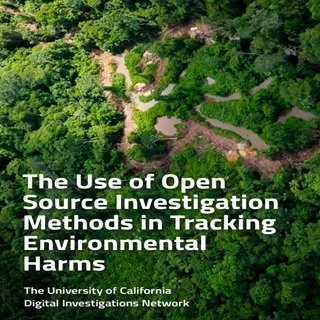By The University of California Digital Investigations Network
In January 2023, the University of California Digital Investigations Network (UC Network) received a Public Interest Technology University Network grant to institutionalize and expand the UC Network to support frontline environmental defenders. During the first phase of the project, in collaboration with Cultural Survival, an organization that advocates for Indigenous Peoples’ rights and supports Indigenous communities’ self-determination, cultures and political resilience, students in the UC Network conducted an open source investigation (OSI) into the deaths of 13 murdered Indigenous land defenders in Brazil, and produced a report documenting the circumstances surrounding their deaths (also available in Portuguese). During the second phase of the project, we focused on developing a broader understanding of how OSI methods can be used to document environmental harms globally, and how OSI is being used in environmental harm research, advocacy and litigation. We conducted a literature review and case law analysis, and convened a meeting with leading several experts who are using OSI in their work, and conducted individual consultations with others. This brief report is an outcome of phase two of our project. In addition, environmental exploitation often goes hand in hand with human exploitation. Indigenous communities are at the forefront of land defense worldwide as their land is often targeted by state and corporate actors through agriculture, fishing, logging, and mining and the extraction of other resources. For example, the Brazilian human rights group Conselho Indigenista Missionario reported the killing of 795 Indigenous land defenders between 2019 and 2022 under former president Jair Bolsonaro. Those engaged in seeking accountability for environmental harms should consider the use of OSI tools to complement more traditional research methods and thoroughly document the ways in which land, peoples and communities have been impacted by extractive, pollutive, and degrading practices.
Berkeley: The University of California Digital Investigations Network, 2024. 10p.


